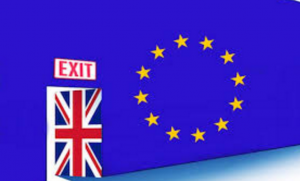After 43-years, the United Kingdom has decided to exit the EU with 51.9% of voters supporting the Leave campaign. The UK entered into the European Economic Community in 1973 under Prime Minister Ted Heath, a decision that was swiftly met with a referendum just two years later when Harold Wilson became Prime Minister. Of course, the UK voters decided that they wanted to remain in the EU and in 1979 Margaret Thatcher pursued policies that integrated us further.
Eurosceptism
It wasn’t until the 1990s that the population of the UK began to change their minds on their involvement in the EU as John Major faced numerous rebellions on the subject and Tony Blair later declined to accept the euro. As we entered a new millennium, parties promoting eurosceptism began to gain popularity, leading to the support for Nigel Farage and Ukip. Due the parties’ popularity, David Cameron decided to hold a referendum, which is where we find ourselves today. England was by far the most pro-Leave country in the UK, with more than 70% supporting the campaign in nine key areas whilst London was the only Remain majority.
‘Opportunity To Take Back Control’
Earlier today, Leave campaigner Gisela Stuart told the Electoral Commission in Manchester that the Brexit vote was “our opportunity to take back control of a whole area of democratic decisions”. Stuart suggested that all political leaders should “reflect on whether they have accurately gauged the people’s desire to govern themselves” before stating that we need a calm cross-party effort to ensure “the best long-term interests of this country”. Finally, in her native German tongue she insisted that Britain would remain an “open, welcoming” country willing to co-operate with its former partners.
Article 50
As for Prime Minister David Cameron, who has today decided to step down from his title of Prime Minister in October, has vowed to activate article 50 of the Lisbon treaty, which begins the two-year process of leaving the EU. The UK will then leave once a deal supported by all 27 members of the EU has been negotiated. If a deal is not reached, the UK will be subject to World Trade Organisation rules meaning there will be tariffs on all trade to the EU. However, we do not know when or if article 50 will actually be triggered.






